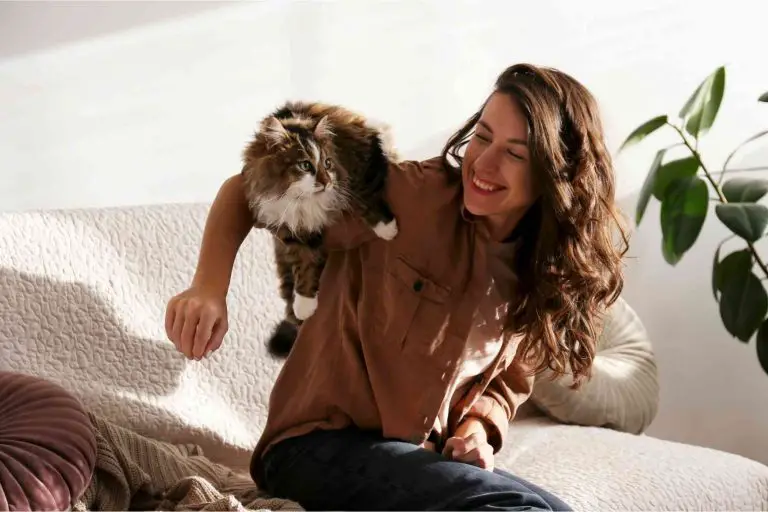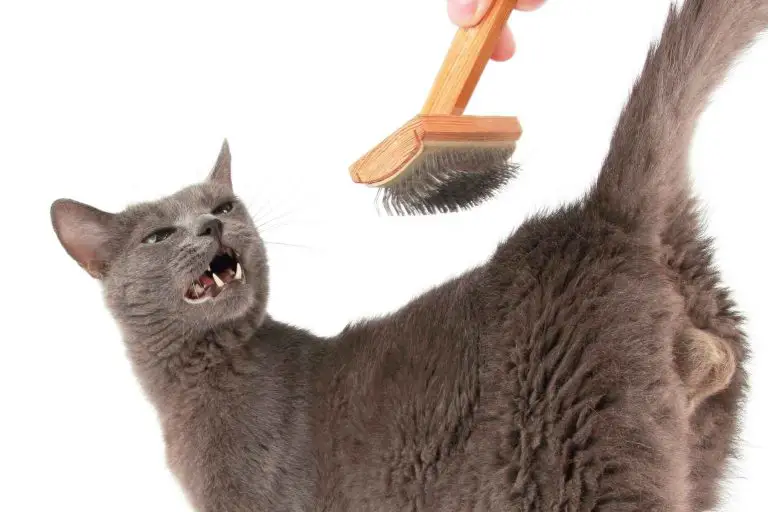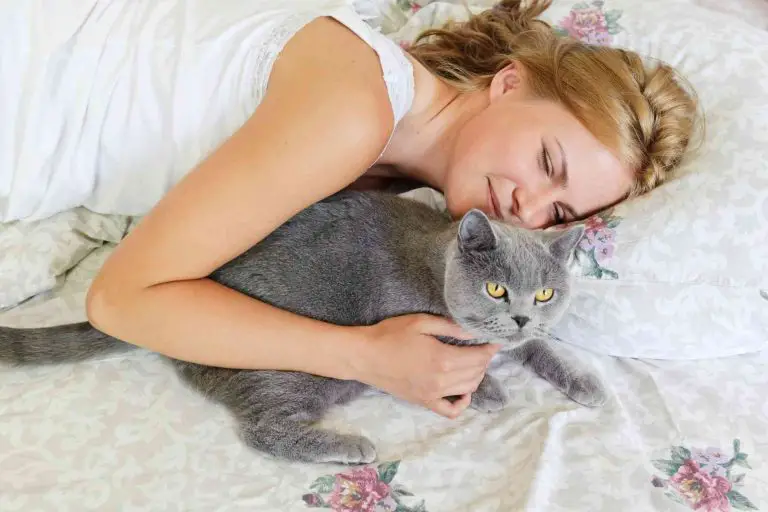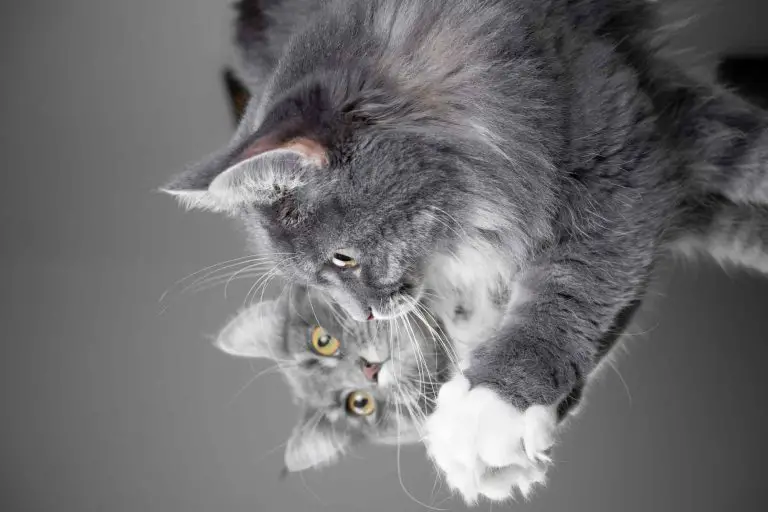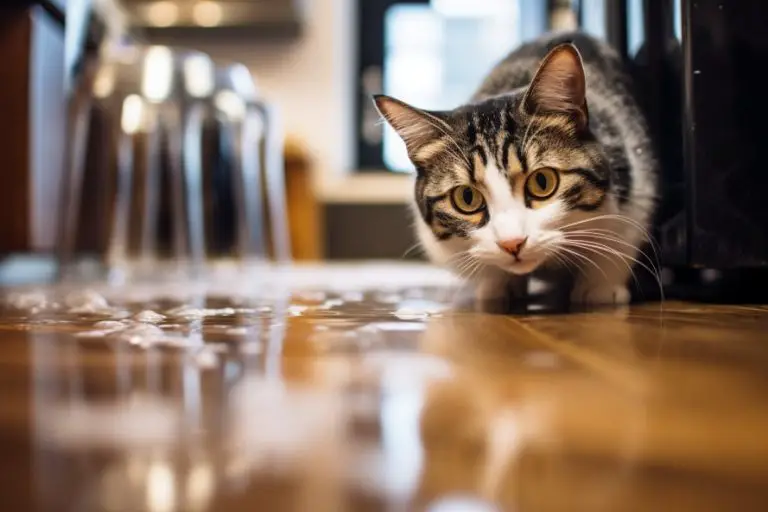Why Does My Cat Lick Me?
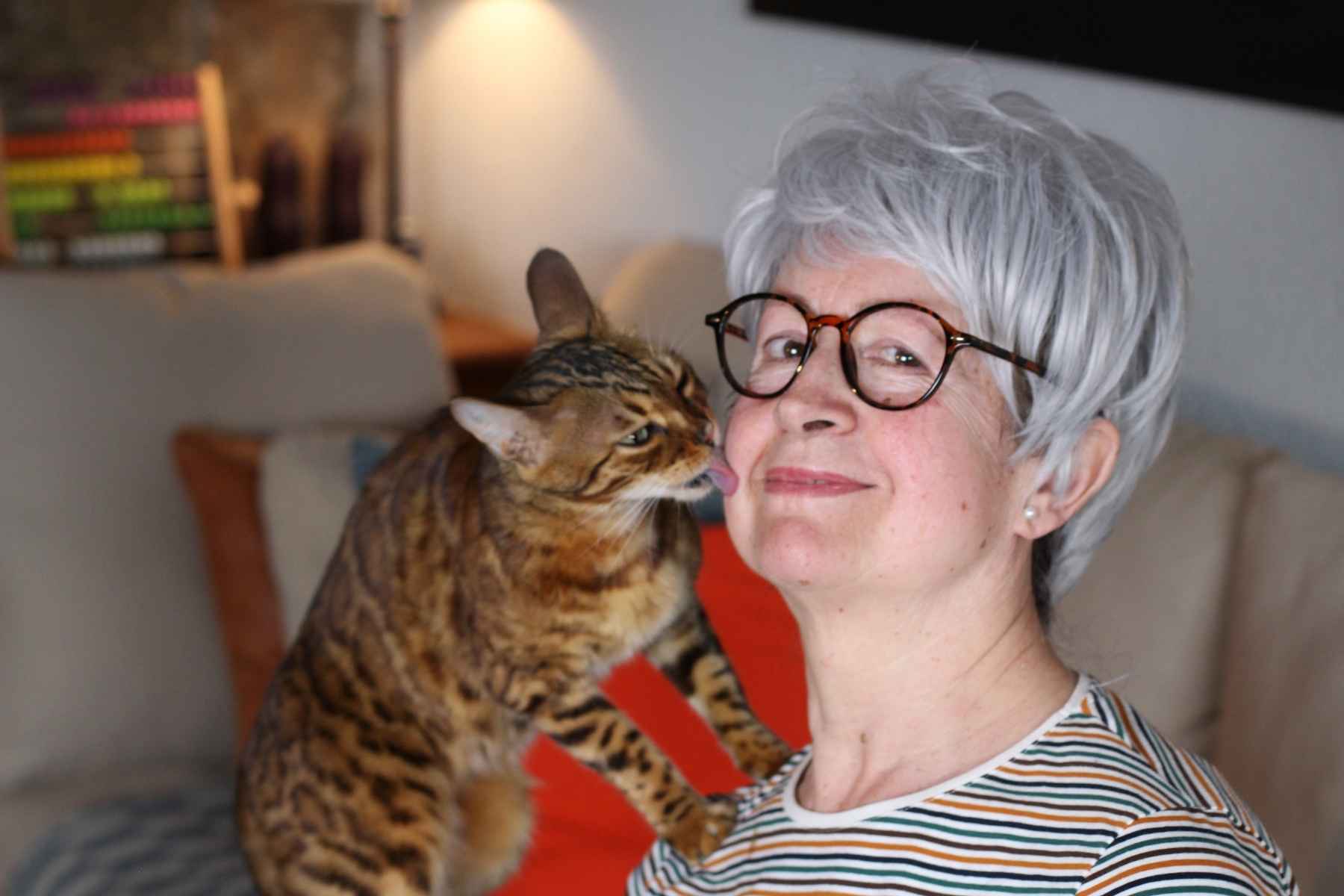
Cat owners know that nothing is more heartwarming than a lick from their kitty. Although, you may not realize just how complex those sweet gestures really are.
Cats lick their owners for several reasons, ranging from showing affection to marking their territory. Generally, licking is a good sign that your feline trusts and loves you. However, they also do it when they’re stressed and may bite soon after if they feel overstimulated.
This article explains the adorable reasons why cats lick their owners. Additionally, it dives into what their licks mean—and how to stop them from doing it too much.
Reasons Why Your Cat Licks You
Licking is a surprisingly complex behavior in domestic cats. Sometimes, they do it to show their owners how much they love them. While at other times, they may just like how you taste.
Here is a list of the reason why cats lick people:
- Marking: Felines lick their favorite people to claim them as part of their group. When your pet does this, they may also nuzzle their cheeks against you.
- Attention: Cats are clever critters that quickly pick up on patterns. If they notice licking you is a reliable way to get some head scratches, they’ll keep doing it.
- Affection: One way your furry friend shows love is by licking you. Often, this affection comes with purring and gentle bites.
- Oral fixation: Your pet may compulsively suckle on your fingers—especially if they were weaned too young.
- Stress and irritation: Pet felines sometimes lick to warn that they’re overstimulated. If you notice your cat doing it while holding them, a bite might not be far behind.
- They like your taste: Weird as it sounds, many felines love our sweat’s salty and sweet taste. They may also start licking if you try a new soap or shampoo that intrigues them.
Is It Okay To Let My Cat Lick Me?
It’s typically fine to let your cat lick you whenever they want. In fact, it can be a great way of letting them bond with you.
However, there are some things to consider first.
First and foremost, cats can carry certain illnesses that affect humans. One of the most prominent examples is cat scratch disease, also known as CSD.
CSD is a bacterial infection that can cause fatigue and low-grade fevers. As you might expect, it’s often transmitted when a kitty claws their owner. However, it can also get spread by an infected cat licking an open wound.
The disease isn’t usually severe, but your family is better off safe than sorry. So don’t let your cat groom you while you have any cuts or scrapes—no matter how cute they act.
Additionally, some lotions and creams that humans use may harm your pet. If you apply any ointments, don’t let your cat lick you until they dry.
Is It Normal for My Cat To Lick Me?
Your cat licking you is generally no cause for concern. If anything, it shows that your pet is normal.
According to Pamela Perry, DVM, felines spend up to 50% of their time awake grooming. That equals a ton of licking every day!
Most of this licking is self-grooming. After all, cats are known for being pretty good at bathing themselves. However, they also do a bit of “social grooming.”
Social grooming is an activity that many creatures, even humans, do. It describes when animals clean one another to show trust, affection, and group bonds. It’s also a way of redirecting aggression—which is why your pet may suddenly bite after a grooming session.
So when your cat licks you, it’s usually their way of bonding. Or to tell you that they’re mad without actually hurting you. However, keep a lookout for any excessive grooming.
If your pet keeps licking the same spot on their body, they may have a tick or infection. So, examine their skin if you notice any unusual self-cleaning habits.
How To Stop Your Cat From Licking You
Most of the time, cat licks aren’t a problem. However, your feline friend may go overboard if they particularly like your scent or taste.
Below are some tips to discourage your cat from grooming you:
- Walk away: Walking away from your cat when they lick you shows them you don’t like it. This tactic is especially effective if your cat does it mostly to get attention.
- Provide enrichment: If your cat constantly demands attention, they might be lacking stimulation. To avoid that, provide plenty of toys and some things to climb. Many cats also do better with a friend.
- Distraction: Consider keeping a treat or toy on hand when playing with your kitty. You can throw it to distract them if they start licking.
- Reinforcement: If your cat manages to play without licking, give them a treat. Similarly, ignore your pet when they give unwanted grooming.
- Wear long sleeves and pants: Generally, cats only want to groom us on our skin. Covering your arms and legs means they’re much less likely to bother you.
Whatever you do, never punish your cat for licking. Scolding them for this natural behavior will only cause stress and confusion. Plus, it can potentially hurt your bond.
How Much Licking Is Too Much?
There isn’t a hard limit on how much you should let your cat lick you. It’s more of a question of what you can tolerate.
However, it’s crucial that your feline friend doesn’t groom themself too much.
Remember how animals sometimes get cones on their head after a visit to the vet? They may look silly, but they also stop our pets from licking wounds that need to heal.
When your cat receives a scratch or bite, they start licking it instinctively. Usually, this behavior helps to clean their injuries. However, it can also have the opposite effect.
Obsessively grooming the same spot will eventually lead to hair loss. And if it continues further, the raw skin may get so irritated that it becomes infected.
So if you notice your cat licking a sore that won’t go away, schedule them a vet visit.
How To Keep Your Cat From Licking Objects
Some cats develop an oral fixation for licking and chewing on objects—especially electrical cords. But thankfully, there are ways to discourage the behavior.
Here is how to deter your cat from nibbling on items around the house:
- Scent deterrent: Spray-on pet deterrents are excellent at keeping cats away from objects. They’re invaluable when your feline is obsessed with something dangerous, like wires.
- Physical barriers: If your cat hides under your desk a lot, consider buying rubber covers for your computer cords. Also, keep your pet out of rooms by closing doors behind you.
- Give them alternatives: Cats, like people, can get bored. So make sure your furry friend has toys to keep them occupied when you’re busy.
- Visit the vet: Rarely, your kitty may be licking things due to an oral issue. Get your pet checked on if their behavior seems obsessive or unpleasant.
Why Do Cat Licks Feel So Rough?
You may have noticed how strangely rough a cat’s lick is. But what makes your feline’s tongue feel like wet sandpaper?
Believe it or not, hundreds of barbs called papillae cover cats’ tongues. These papillae are made of keratin, the protein that also makes up a kitty’s nails and hair. As a result, they give your pet’s licks a coarse feeling.
Up close, the papillae look like rows of white spikes. But despite their unsettling appearance, they aren’t at all dangerous. In fact, these barbs are pretty incredible evolutions for cats.
For one, they maximize how much food cats get from any prey that they catch. The papillae act like hooks, stripping meat off of bones. It also helps them reach the marrow inside of bones.
Secondly, the barbs make drinking easier. Each acts like a tiny bowl, helping cats ‘scoop’ up water. This adaptation keeps them safer in the wild by allowing them to watch their surroundings.
And finally, research has shown that papillae are excellent for grooming. Their unique shape thoroughly cleans hair and makes collected fur easy to remove from the tongue.
Why Does My Cat Gently Bite Me?
If your cat ever licks you, the chances are they also sometimes nibble.
Bites are something that people typically want to avoid. However, cats can often gnaw on their owners gently and affectionately.
Similar to licking, this behavior can be a form of social grooming. Cats use their teeth to pull fleas and debris off themselves. So your pet may just be trying to clean you in their own cute way.
Gentle biting is also a sign that your cat is feeling playful. After a licking session, they might start wrestling and chewing on your arm. In addition to looking adorable, it generally means your pet loves and trusts you.
However, in some cases, a soft bite can be a warning. If your pet nips you and then growls or puffs their tail, consider giving them some space.
Final Thoughts
Cats ordinarily lick their owners to show their affection and trust.
However, they may also do it out of irritation or for attention.
While their tongue may feel rough, it’s okay for your feline to groom you. If anything, it’s their adorable way of bonding.

